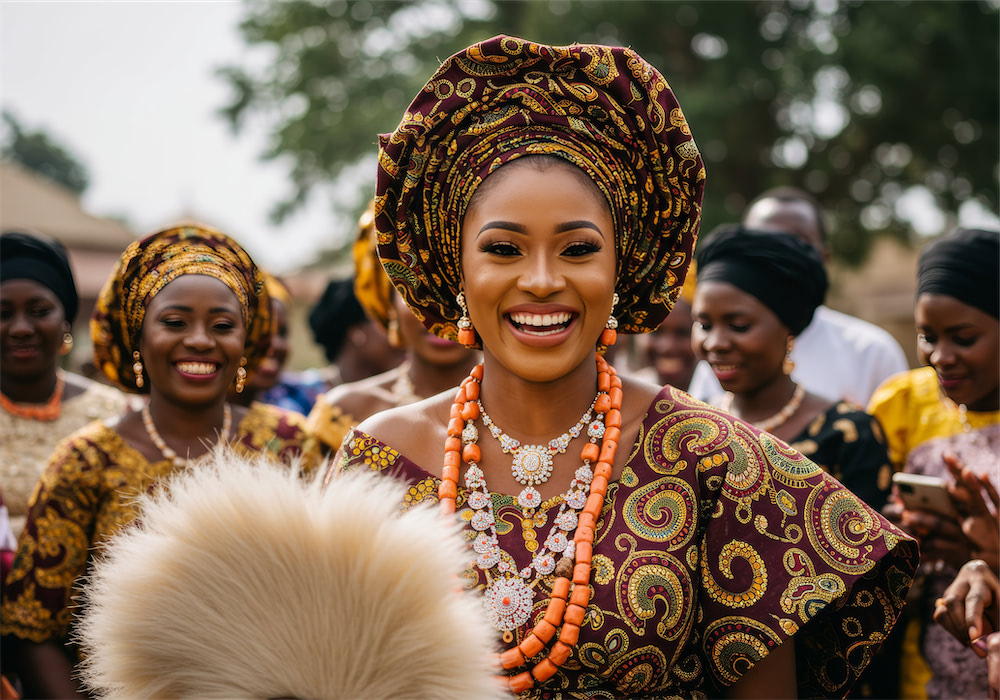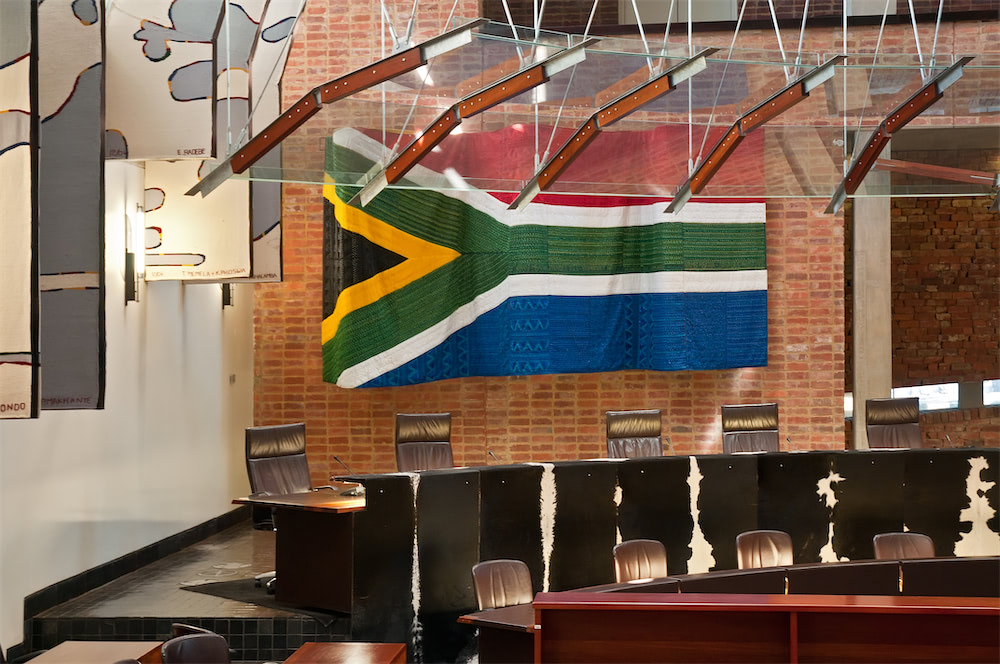

The Coexistence of Matrimonial Property Regimes - Can they?
South Africa is a truly wonderful place.
This is a fact. And we say it for so many wonderful reasons – for her beautiful mountains and coastline, fauna and flora, for the bustling cities and rustig countryside, for the street vendors and car guards, for the chaos that is the taxi’s ferrying people to and from work, for Checkers Sixty-60, and streetside boerie rolls, to the vuvuzela’s and rugby supporters, to our 11 official languages and national anthem that’s in 5 of our official languages – it brings a tear to all of our eyes. We are a country full of colours – which is why we are known as the Rainbow Nation. Something every South African, no matter the creed, is proud of.
So, when it comes to how we are married there are some nuances that set us apart from other countries around the world.
We are unique. And our matrimonial regimes are (sometimes) too.
The Types of Marriages in South Africa
In South Africa we have 3 different types of marriages that can occur -
1. As with other countries around the world, we have what is called a civil marriage - a civil marriage is a legally recognised union between a man and a woman, governed by the Marriage Act 25 of 1961 (the Act). It's the most generic form of marriage and is registered with the Department of Home Affairs. Civil marriages can be in community of property or out of community of property, with or without the accrual system, and are formalised through a marriage officer (Section 2(1) of the Act “Every magistrate, every special justice of the peace and every native commissioner shall by virtue of his office and so long as he holds such office, be a marriage officer for the district or other area in respect of which he holds office”) -
a) Community of Property – a marriage in community of property (COP) is the default marital regime in South Africa, which means that if a couple doesn’t sign an Antenuptial Contract (ANC) before getting married, they will automatically be married in COP. This regime involves merging the couple’s assets and liabilities into one joint estate. Both spouses have equal rights to the assets and are equally liable for the liabilities or debts. In the case of a divorce, the couple’s assets are divided equally between the spouses, regardless of who acquired them. This regime can be risky for individuals with significant assets or those with substantial debts or liabilities, as their spouse will also be liable for those debts.
b) Out of Community of Property - an ANC is the most common marital regime in South Africa. It involves a contract that is entered into by the couple before marriage, and it determines how their assets and liabilities will be managed during the marriage. There are 2 types of ANC: without accrual or with accrual.
i. In an ANC without accrual, each spouse retains control of their own assets and debts during the marriage. Your assets and liabilities are not merged, and you are not liable for each other’s debts. In a divorce, each spouse retains the assets and liabilities they have accumulated individually during the marriage.
ii. In an ANC with accrual, each spouse is still not liable for the other’s debts, but the couple agrees to share the growth of any assets that occurs during the marriage. This means that each spouse retains control of their assets, but in the event of a divorce, the assets accumulated during the marriage are divided equally between the spouses.
2. We then have what is known as a customary marriage - the Recognition of Customary Marriages Act 120 of 1998 (Customary Marriages Act) recognises the existence of customary marriages in South Africa. A customary marriage is a marriage concluded in terms of customs and usages traditionally observed among the Indigenous African people of South Africa and which form part of the culture of those people. Customary marriages can be monogamous or polygamous in nature. Sometimes these marriages are referred to as “traditional marriages.” By default, customary marriages are in community of property, but parties can change their matrimonial regime through an ANC, just as they can do in a civil marriage or civil union (discussed below). Important - in a customary marriage, if the requirements to conclude a valid customary marriage are met, registration of the customary marriage alone does not serve to validate it. Parties to a customary marriage must satisfy the three requirements which are defined in the Act being: a) That they are over the age of 18 when the marriage is concluded; b) That they both consent to the conclusion of the marriage and c) That the marriage is negotiated and entered into or celebrated in accordance with customary law. Customary marriages can be polygamous in nature. Whilst civil marriages and civil unions (discussed below) are by their nature monogamous in nature, customary marriages allow for a man to marry more than one wife.
3. Lastly, we have what is referred to as a civil union. The Civil Union Act 17 of 2006 (Civil Act) in South Africa provides for the solemnisation of civil unions, by way of either a marriage or civil partnership i.e. for both same-sex and opposite-sex marriages to be legally recognised. A civil union grants the same legal rights and responsibilities as a civil marriage, providing equal benefits and protections regardless of the partners' gender or sexual orientation. The consequences of a civil marriage, and a civil union are however the same: if one is to be married without ANC, spouses are deemed to be married in COP. The conclusion of a valid ANC prior to conclusion of the marriage, which establishes an out of COP regime (with or without accrual), is the manner in which spouses can contract out of the default regime. Unless a valid ANC is concluded, the parties to a civil union are automatically married in COP.
Can These Marital Regimes Coexist?
As we stated above, South Africa is a wonderful country with many of its own nuances. One of those nuances is the existence of a customary marriage. As we set out above, a customary marriage can be polygamous by nature which means that one husband to a customary marriage can have more than one wife. As such one man can enter multiple customary marriages with multiple women. If they meet the following criteria –
· The marriage must be negotiated, entered into, or celebrated in accordance with customary law. This means that the marriage must be entered into in line with the traditions and customs of the parties.
· The parties who are getting married must be 18 years or older. If one or more of the parties are minors (below the age of 18 years), both his/her parents or legal guardian must give consent to the marriage.
· The parties must also be competent to marry each other, meaning that they must not be blood relatives. For example, siblings are not allowed to marry each other.
· Both parties’ consent is required for the marriage to be valid. A person who cannot give consent, such as a mentally insane person, will not be able to get married.
· The marriage must be lawful.
But what is the situation when it comes to a civil marriage and customary marriage coexisting?
This often happens when deciding whether a couple is married according to customary law or whether a couple has a civil marriage. Some may ask why this is important – well, as Judge Mangena AJ put it in the recent matter of L.M.P v N.J.D.P (Appeal) (HCAA33/2024) [2025] ZALMPPHC 122 (19 June 2025) –
“(4) Of course it matters, and it is a big legal issue that has pre-occupied judicial and non-judicial minds for centuries and it appears it will be like this for as long as Black people have a choice whether to marry either by customary law or civil law. This is because in African culture, a marriage is not an event but a process involving not only the parties getting married but also their families and children. It is a cultural process with legal consequences as opposed to a legal process with cultural consequences. Ntate Mangena puts it as follows "A wedding (marriage) is a ritual full of cultural meaning. Your wedding tells us who you are".”
What gave rise to the dispute between the parties is compliance with the cultural process of marriage and legal consequences which flow from it.
The wife who is the appellant contends that she is married to the respondent in community of property. The marriage was concluded and entered into on the 10th of January 2015. The Customary Marriage Act governs the marriage and that there was no ANC entered into by the parties prior to its conclusion. The 10th of January 2015 (according to her) is the date on which the process for the conclusion of the customary marriage was completed.
The husband who is the respondent holds a completely opposing view. He denies that they agreed to enter into a customary marriage. They had always wanted to marry out of community of property, and it is for that reason that they concluded an ante-nuptial agreement on the 13th of October 2015 before a Notary Public in Polokwane, which contract expressly excluded community of property and loss as well as the accrual system. The ante-nuptial contract was registered in the Deeds office on 30 October 2015. Subsequent to the conclusion of the ante-nuptial contract, they got married out of community of property without accrual on 23 October 2015. This is the marriage which exists between them as evidenced by the marriage certificate issued by the Department of Home Affairs. The marriage, according to him, is governed by the Marriage Act 25 of 1961.
Before the trial, the couple agreed to narrow the dispute to whether a customary marriage existed. The wife was to prove its existence first. But during proceedings, they agreed that both marriages were valid – and only the enforceability of the antenuptial contract remained in question.
Judge Mangena called this “an unusual and casual approach” to a serious legal dispute. He emphasised it’s impossible for both marriages to stand side by side. Calling the notion that both are valid “legally untenable,” he said the lower court erred in allowing the case to proceed on this flawed basis.
The judge explained the validity of the customary marriage cannot be settled by agreement alone. It demands full evidence, which was lacking. The lower court had no solid facts to confirm the customary marriage.
Judge Mangena said the trial court should have insisted on a detailed written statement of facts, as required by court rules and precedent.
He added: “On the facts of this case, my preponderant view is that there were no concessions made, and if any, they were not properly made and are therefore not binding on this court. The issue regarding the existence of the customary marriage is still in dispute. We cannot decide it on appeal.”
The judge upheld the appeal, set aside the previous court order, and sent the matter back to the lower court to hear further evidence on whether the customary marriage exists.
In the matter of Mavundla v Mthethwa N.O. and Others (452/2021) [2023] ZAKZDHC 97 (21 December 2023), the KwaZulu-Natal High Court, Durban, deliberated on the intricacies of customary marriage in the context of existing civil marriage.
Here, the applicant (HN Mavundla), sought legal recognition of her customary marriage to the deceased, MM Zuma, who was already married under civil law at the time of the alleged customary marriage. The core contention was whether a valid customary marriage existed between them under the Recognition of Customary Marriages Act.
Judge Gwagwa AJ, scrutinized the customary practices allegedly followed, including lobola negotiations and payments. However, the presence of an existing civil marriage between the deceased and another posed a legal hurdle. Section 10(4) of the Customary Marriages Act explicitly prohibits a spouse in a civil marriage from entering another marriage, rendering any subsequent union invalid during the subsistence of the first –
“10(4) Despite subsection (1), no spouse of a marriage entered into under the Marriage Act, 1961, is, during the subsistence of such marriage, competent to enter into any other marriage.”
Ultimately, in this matter, the court dismissed the application, emphasising the importance of the civil marriage and the consequent invalidity of the subsequent customary union under the existing legal framework.
What is the Conclusion?
What is often the case is that a monogamous couple can enter into a civil marriage and customary marriage with one another. This is called a dual marriage. Here the same couple is married to each other by both civil law and by customary law. Despite the full recognition of customary marriages by the Recognition of Customary Marriages Act 120 of 1998, dual marriages are still rife in South Africa. In fact, s 10(1) of the Recognition of Customary Marriages Act permits monogamous dual marriages. A dual marriage should not be confused with a polygynous marriage where a person has various spouses at the same time. If a person decides to enter into a polygynous marriage, s 10 of the Recognition of Customary Marriages Act is also apposite. This section provides that a civil marriage cannot co-exist with a customary marriage in a polygynous setting (s 10(1) and (4)). Only a customary marriage can withstand polygyny. In other words, a polygynous dual marriage is impermissible (s 10(4)). Nevertheless, people still enter into subsequent marriages during the subsistence of a civil marriage with another person. BUT this would be legally impermissible in terms of Section 10 of the Customary Marriages Act. The effect is that the second marriage will be invalid.
So, yes, a monogamous couple can enter into a dual marriage with each other provided the civil marriage is entered into first (with a corresponding ANC – if required) followed by the customary marriage. Both marriages must be registered.
But an individual who has entered into a civil marriage with one partner cannot then go and enter into a customary marriage with another partner.
Simple as that.
We hope this has answered the question of whether or not a civil marriage and customary marriage can coexist.
We have taken the utmost care to ensure that the above information is correct having taken information directly from the Marriages Act 25 of 1961, Recognition of Customary Marriages Act 120 of 1998 as well as the Civil Union Act 17 of 2006, but we urge you to consult with a suitably qualified legal practitioner who will be able to answer any questions you may have on the best way to recover outstanding debt and what steps you should be taking. In this regard, we would be more than happy to support you. Please feel free to contact us to see how we can best assist.
We are a law firm that considers honesty to be core to our business. We are a law firm that will provide you with clear advice and smart strategies - always keeping your best interests at heart!
(Sources used and to whom we give thanks – Moonstone; Vermeulen Attorneys; Legal Wise; De Rebus; Nedbank and Witz Inc).




